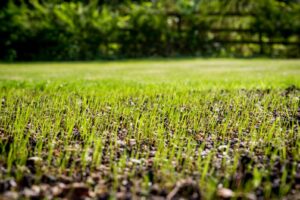
In an era where environmental consciousness is paramount, the coffee industry is awakening to the importance of sustainability.
From bean to cup, the journey of coffee has the potential to be both a flavorful and eco-friendly experience.
This article explores the various facets of the eco-friendly coffee movement, from sustainable farming practices to mindful brewing methods, inviting coffee enthusiasts to embrace a more sustainable sip.
Brewing a Greener Bean: The Foundation of Sustainable Coffee
This section focuses on the initial stages of coffee production, emphasizing the importance of sustainable practices from cultivation to harvesting.
Fair Trade Coffee: Empowering Coffee Communities
Fairtrade is more than a label; it’s a commitment to ethical practices. This section explores the concept of fair trade coffee, shedding light on how it ensures that coffee farmers receive fair compensation for their hard work.
Buy from Hague coffee shop, consumers contribute to the sustainability of coffee-growing communities. The foundation of sustainable coffee is built on ethical and environmentally friendly farming practices.
It introduces readers to the concept of fair trade coffee, emphasizing the fair compensation of coffee farmers, and explores the principles of organic coffee farming, which avoids synthetic pesticides and fertilizers.
Organic Coffee Farming: Preserving Ecosystems and Health
Embracing organic coffee means saying no to synthetic pesticides and fertilizers. Here, we delve into the principles of organic coffee farming.
Explaining how it not only preserves ecosystems by avoiding harmful chemicals but also contributes to healthier soil and water systems.
Additionally, it explores innovative technologies in coffee roasting that prioritize energy efficiency and waste reduction, making the roasting process more environmentally friendly.
The Roast Revolution: Sustainable Coffee Roasting Practices
Centered around the roasting process, this section delves into sustainable coffee roasting practices. It introduces the concept of carbon-neutral roasting, highlighting efforts by coffee roasters to offset their carbon emissions.
Carbon-Neutral Roasting: Minimizing Environmental Footprints
Roasting coffee beans is an energy-intensive process, but strides are being made to minimize its environmental impact.
This section explores carbon-neutral roasting practices, discussing how some coffee roasters are offsetting their carbon emissions, making the roast revolution a sustainable one.
Additionally, it highlights manual brewing methods like pour-over, French press, and AeroPress, emphasizing their low environmental impact through reduced waste and energy consumption.
Energy-Efficient Roasting Technologies: Innovating for Sustainability
In the pursuit of sustainable roasting, new technologies are emerging. From energy-efficient roasters to waste heat recovery systems.
This subsection showcases innovative approaches that coffee roasters are adopting to reduce energy consumption and waste during the roasting process.
Brewing Mindfully: Sustainable Coffee Brewing Methods
Focusing on the brewing stage, this section explores sustainable coffee brewing methods. It addresses the environmental impact of single-use coffee pods and suggests eco-friendly alternatives.
The Impact of Single-Use Coffee Pods: Seeking Eco-Friendly Alternatives
Single-use coffee pods have become immensely popular, but their environmental impact is a cause for concern.
Here, we explore the ecological challenges posed by traditional coffee pods and introduce eco-friendly alternatives, encouraging coffee lovers to brew their daily cup with sustainability in mind.
Additionally, it investigates sustainable coffee packaging options, showcasing how conscious choices in packaging contribute to a circular economy within the coffee industry.
Manual Brewing Methods: A Low-Impact Approach
For those seeking a more hands-on approach to brewing, manual methods like pour-over, French press, and AeroPress offer a sustainable alternative.
This section delves into the low environmental impact of these manual brewing methods, emphasizing the reduction of waste and energy consumption.
It explores innovative uses for coffee grounds, emphasizing their potential as a resource rather than waste.
Beyond the Cup: Coffee and Circular Economy
This section extends the discussion beyond immediate coffee consumption by exploring the circular economy aspects of coffee.
Coffee Grounds: From Waste to Resource
Coffee grounds, often discarded as waste, can be repurposed into valuable resources. This section explores innovative uses for coffee grounds.
Including composting, skincare products, and even as a source of biofuel, demonstrating how coffee can contribute to a circular economy.
It also examines the sustainability initiatives of major coffee retailers and boutique roasters, emphasizing their responsibility in shaping a more eco-friendly future for the industry.
Sustainable Coffee Packaging: Reducing the Ecological Footprint
Packaging plays a crucial role in the sustainability of coffee. This subsection investigates the various sustainable packaging options available.
From compostable bags to reusable containers, highlights how conscious choices in packaging contribute to the overall eco-friendliness of the coffee industry.
It breaks down common sustainable coffee certifications, empowering consumers to make informed choices aligned with their environmental values.
The Role of Coffee Retailers and Consumers in Sustainability
Focusing on the collective responsibility in promoting sustainability, this section highlights the role of both coffee retailers and consumers.
Sustainable Coffee Certifications: A Guide for Consumers
As consumers, making informed choices is a powerful way to drive sustainability. This section breaks down common sustainable coffee certifications.
Such as Rainforest Alliance and UTZ, empowering consumers to choose coffee products that align with their environmental values.
Both retailers and consumers play pivotal roles in driving sustainable practices within the coffee supply chain.
Coffee Retailers’ Commitment to Sustainability: Leading by Example
Leading coffee retailers have the potential to drive substantial change. Here, we examine the sustainability initiatives of major coffee chains.
And boutique roasters, emphasizing their responsibility in shaping a more eco-friendly future for the industry.
Conclusion
The sustainable sip goes beyond the act of enjoying coffee it’s a conscious choice to support environmentally friendly practices throughout the entire coffee journey.
From the hands that cultivate the beans to the brewing methods and packaging choices, every step offers an opportunity to contribute to a greener coffee industry.
Navigating the eco-friendly coffee movement isn’t just about sustainability; it’s about savoring a cup that carries the essence of responsible stewardship for the planet.




